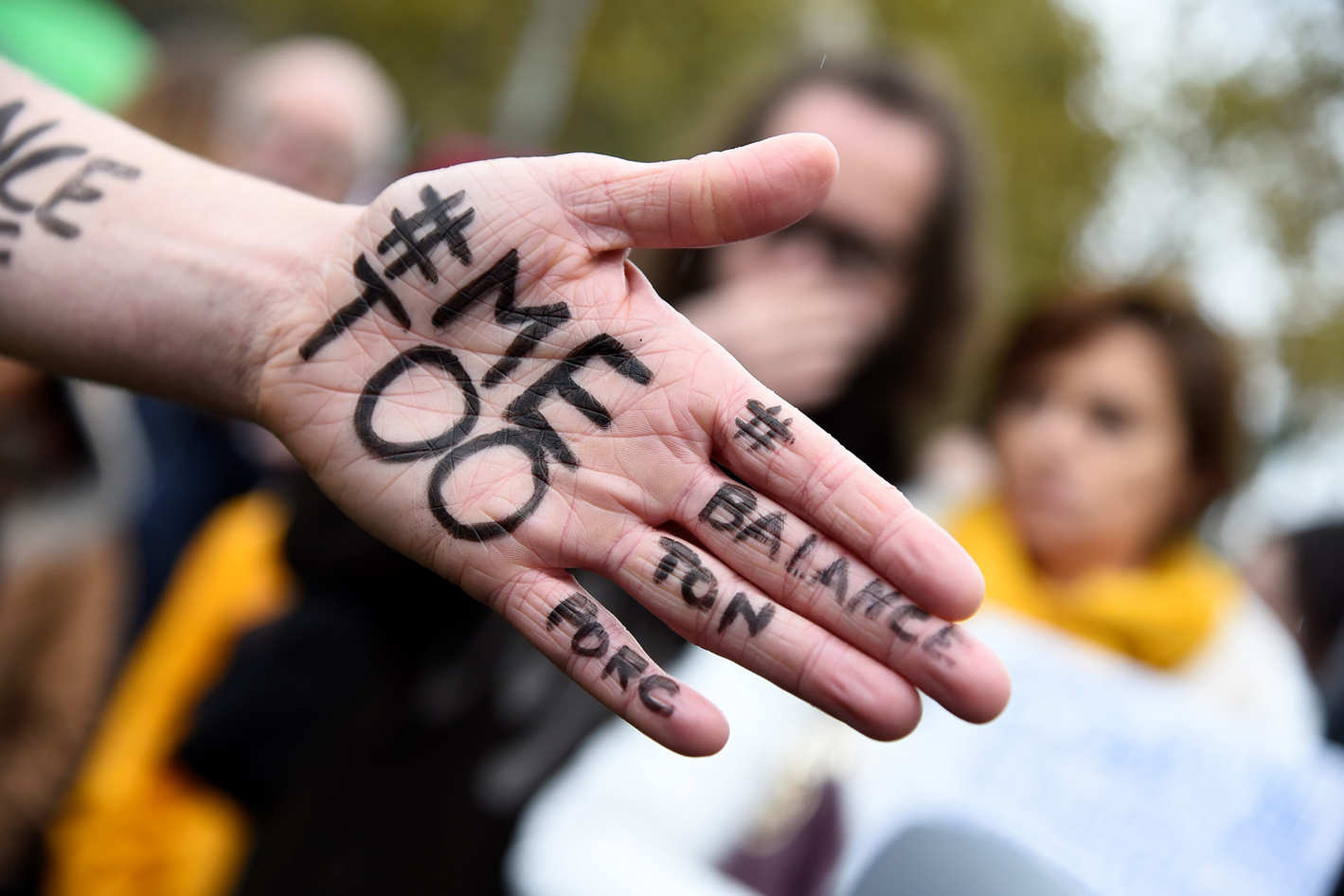![]()
In the wake of the scandal and investigations surrounding Harry Weinstein, a movement swept across the world, encouraging victims of sexual violence to break the silence and speak out.
The Twitter tag “#MeToo” began on Oct. 15, started by actress Alyssa Milano who posted a tweet encouraging women to use the hashtag “MeToo” to raise awareness for the widespread nature of sexual violence.
“If you’ve been sexually harassed or assaulted write ‘me too’ as a reply to this tweet,” Milano wrote.
Within 24 hours, Milano’s tweet was retweeted more than 17,000 times, which sparked use of the hashtag in more than 85 countries.
Celebrities such as Lady Gaga, Gabrielle Union and Rosario Dawson have tweeted the tag to stand along side Milano and thousands others.
The movement sparked controversy as soon as it started. Critics have questioned the motives and outcomes of the movement, doubting whether it will cause society to rethink its views on sexual assault and advocacy.
Three female John Brown University students who identified themselves as survivors of sexual violence shared their thoughts on the “MeToo” campaign. Per their requests, their names have been changed to protect their identities.
Jennifer, one of the students, finds the movement enabling to women who suffer after being sexually assaulted.
“I think it’s a really strong movement. It’s. . .a terrible thing to experience. It’s happened to so many people,” Jennifer said.
Jennifer, whose mother and close friend are also victims, said the movement comforts her and lets her know that she is not alone in her suffering.
“I wouldn’t wish anything like this to happen to anybody, but it’s reassuring that you are not alone in the world,” she said.
Although it is too soon after her own experience to share “MeToo” publically on social media, Jennifer hopes that one day soon she can share it confidently.
Kelly, another victim of assault, believes that the movement should go beyond sharing experiences on social media. To her, sharing is only the first step in bringing awareness.
“Any sort of vocalization of these types of experiences, I think that is beneficial. But I think it can only go so far if it is on social media,” Kelly said. “We have to get beyond that and actually start discussing it interpersonally and as communities.”
Kelly said that she sees an inherent lack of motivation in culture to speak on the issue of any kind of sexual violence. For the movement to be successful, she believes people need to discuss the issue more openly.
“It is easier to talk about things that are not face-to-face,” Kelly said, while understanding that many victims may not be quite ready to expose their own story as public knowledge.
“Those experiences are very isolating. Pretty much anyone who goes through it feels like it is their fault and there is a lot of shame and guilt that comes with it. I think that most people that go through this will think those things,” Kelly said. “So even just using the hashtag ‘MeToo’ lets you know that you are not alone. . .There are a lot of people who are experiencing the same thing.”
Using the hashtag, Kelly said, may be an opportunity for communal grief, hope and ultimate healing. For Kelly, this is more than just raising awareness to the problem, but also helping others heal.
“Something that has been important for me is grieving with God through all of this and bringing Him into this process and so if I ever used the hashtag ‘MeToo,’ I would probably talk about how God helped me,” Kelly said.
Hailee, another victimized student, appreciates the message of the “MeToo” movement, yet remains a bit skeptical of it as well.
Hailee thinks that, generally, people know and understand the gravity of sexual abuse in the world. She also wonders how often the hashtag is used to gain attention.
“I don’t think people are naïve to the fact that it happens. Abusers either don’t care that what they are doing [is] wrong and that it hurts other people, or they don’t know,” Hailee said.
Hailee was in a relationship with a former JBU student for about 10 months before she broke up with him. Only after the breakup did she realize that she was manipulated for sexual favors for most of the relationship’s duration.
“He would get so incredibly angry with me – would threaten to break up with me,” Hailee said. “Whenever he would make advances and I would say no, he would get super mad and would just walk away and ignore me to get me to talk to him again. So I would give in.”
They would have sex, which left Hailee filled with shame and feeling upset. Hailee didn’t want to have sex, yet her former boyfriend manipulated her until she said eventually said yes.
After the break up, Hailee filed a Title IX report with the school and attended counseling. It was during the counseling sessions that her healing journey began.
“I made a decision very conscientiously that I wanted to handle it in a very healthy way,” Hailee said, grateful she turned to family and friends for support rather than alcohol. Her ex-boyfriend left the school, which aided in her healing process.
Hailee said she doesn’t see the need of personally using the hashtag as she is continuing to heal.
“I didn’t post anything because what happened to me was very personal and I don’t want it to be a public spectacle. I don’t want it to seem like I’m getting attention,” Hailee said.
Despite her skepticism, Hailee hopes the movement will be used for victim’s ultimate good.
“My prayer and hope for this movement is that it is used not for attention but to let other people know they are not alone, that it will create a community that is empowering other victims,” Hailee said.





